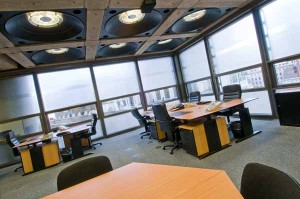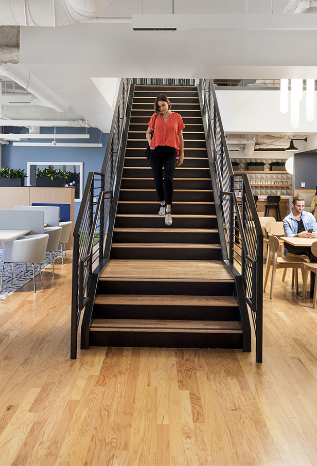Researchers in the United States found that “focus tasks“ that require a little bit of peace and quiet to achieve are more difficult to accomplish when staff are in too close proximity to colleagues. Having the distractions of colleagues close by can prove a huge headache, even for the most switched-on of workers, but what about a ping-pong table, a bar, a slide or a cinema?
These days it seems that open-plan working simply isn’t enough. Companies, particularly in the creative or tech industries, are ploughing money and energy into designing offices that look more like adult playgrounds, in the hope that it will make their employees more creative.
It’s a trend that has its origins in the US, with basketball hoops and Jelly Bean machines cropping up in creative offices. Having a fun environment, our stateside workers believe, will help spark conversations and collaboration, encourage people to be playful and, crucially, generate great ideas. It will also impress clients and help with talent retention and recruitment.
But is all this really necessary? What about those who work better in a quieter, more contained environment.
 Encouraging public sharing of ideas and collaboration in the work place is great for generating new ideas. There are numerous ways and reasons for how and why quirky and open-planned offices can aid creative thinking, however, very few have looked at how it can also have the reverse effect.
Encouraging public sharing of ideas and collaboration in the work place is great for generating new ideas. There are numerous ways and reasons for how and why quirky and open-planned offices can aid creative thinking, however, very few have looked at how it can also have the reverse effect.
Public sharing of ideas only suits certain types of personalities and forcing an introvert to take part in this type of collaboration can considerably suppress their ideas and willingness to speak up and share their thoughts. Quirkiness can also prove to be a huge distraction, diverting focus away from the real reason people are in the office – to work. Having games and sources of entertainment on tap for employees can encourage slack attitudes to work and cause resentment amongst those members of staff who prefer not to engage with such features.
In many situations, quirky offices have the desired effect and bring teams closer together, promoting good company morale. However, if these types of offices are the offices of the future, it is important to set ground rules.
Companies need to give people the freedom to make their own decisions about what stimulus they need, recognise there are different triggers for creativity and not make assumptions on behalf of an individual. Creativity is something that should always be encouraged, but never forced.
